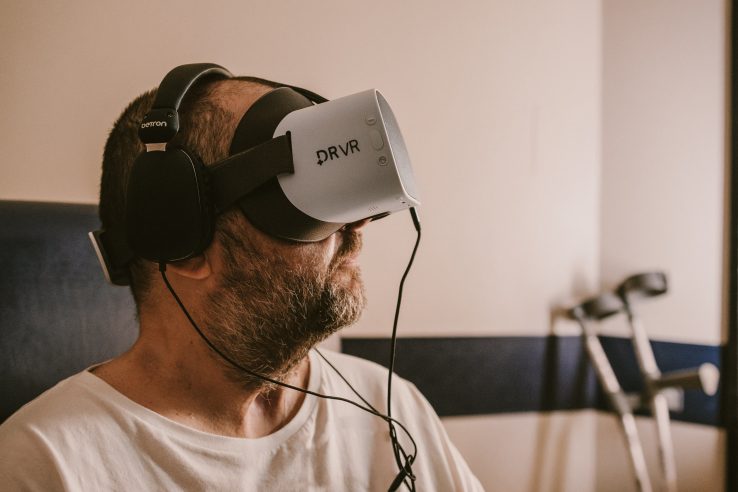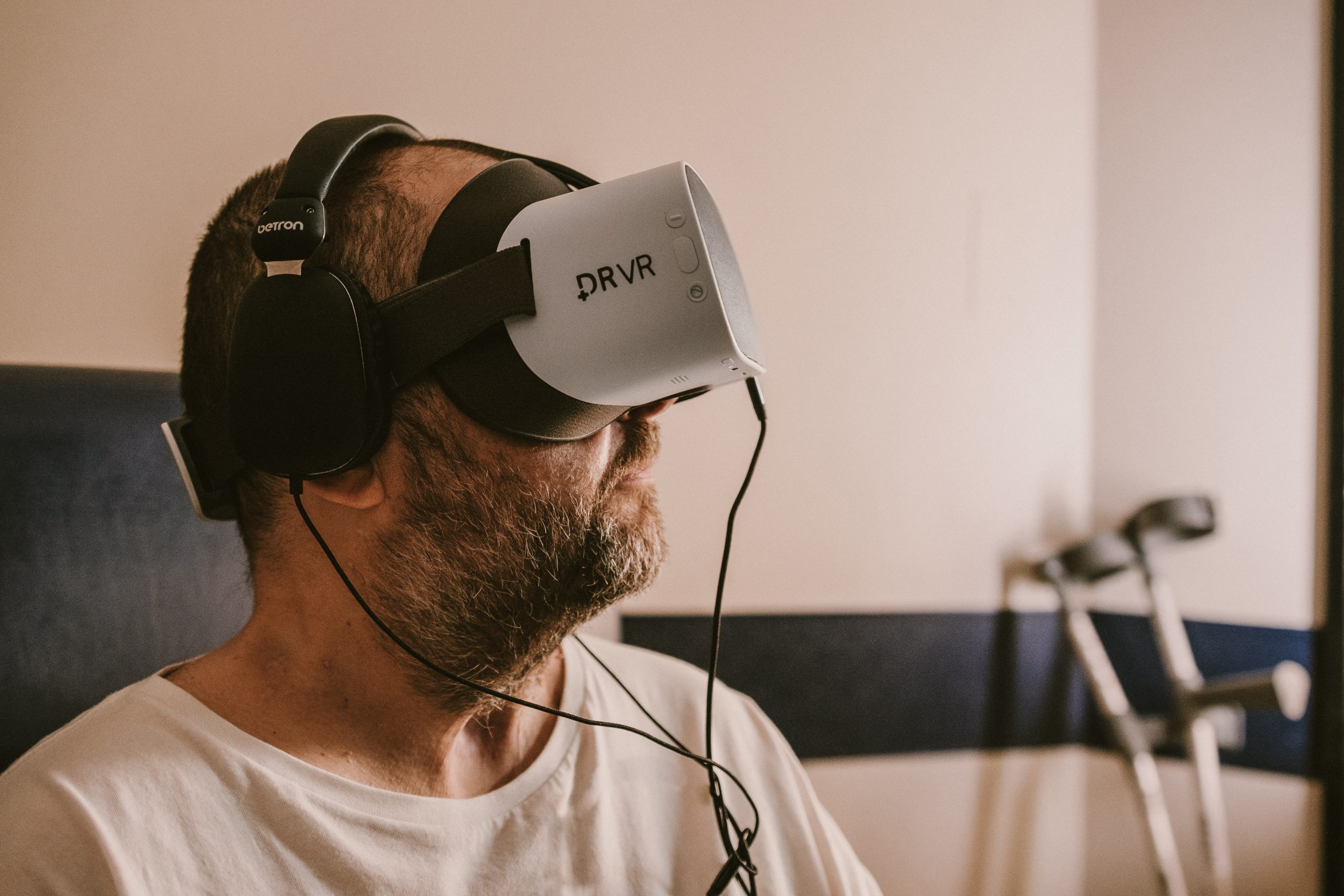VR-READY Placement: Reflections Of A Fourth Year Medical Student
20 December 2023
Cardiff University hosts a range of student placements within the on-campus internships programme providing opportunities for undergraduate students to undertake summer placements within university departments. This year, the VR-READY team welcomed Anna Bijou, a fourth year medical student and here is what she thought about her experience!
– Blog by Anna Biju and Dr Kim Smallman
As a fourth year medical student, I came to realise that I needed to shift my focus into enhancing my career skills and becoming a good clinician as opposed to solely working towards passing all my exams. Upon reflection, I recognised that a personal area of weakness was my knowledge and involvement in medical research. Although there are several research opportunities throughout the course, I believe that there is very limited exposure to the research process as a whole. This ultimately encouraged me to apply for a research-based summer internship.
Why VR-READY?

I was incredibly pleased to be offered a position on the VR-READY internship scheme as it was my top choice within the several applications I had submitted towards the On-Campus Internship Scheme. There were several aspects that pushed me to favour this particular internship. First of all, seeing how the project was clinical and based on rehabilitation medicine suited my interests as I have always been keen on studying chronic diseases, holistic care and long-term recovery. Additionally, the involvement of Virtual Reality was another selling point as I understand its evolving use in the medical field through using it myself during simulation and training sessions. Lastly, the aspect that piqued my interest the most was the qualitative nature of this project as this opportunity would provide me a whole new skillset as almost all my previous work was quantitative.
My experience
This project has been a steep learning curve for me with a fair share of challenges and new experiences, however, I was never short of support. My lead supervisor, Dr Kim Smallman was a constant guidance throughout the project and always allowed for open discussion about questions I had with regards to qualitative research (which was plenty!). Co-supervisor Dr Cheney Drew similarly introduced me to her role as a chief investigator of a research trial and I was able to attend several meetings led by Dr Drew which painted a picture of the true research process and its logistics. Lastly and certainly not least, Dr Ceri Lynch and co-lead for VR-READY was also an important mentor as she was able to show the role of a clinician in research which is more relevant to my background as a medical student. Dr Lynch also kindly invited me to meet and work with her ICU team which helped me visualise the direct need and impact of this research study.
My main task initially was to produce a literature review on Post-Intensive Care Syndrome (PICS). This was hugely beneficial as firstly, I’d never heard of PICS before and secondly, I’d never produced a comprehensive literature review since my first year of medicine. I was also able to see why a literature review was integral to this project as it later helped me identify the relevance of the collected data and the area of PICS that I wanted to focus on.
Another key experience was familiarising myself with NVivo, a qualitative analysis tool. The software itself was a new experience but learning how to work with qualitative data with written and audio outputs involved a completely different approach and mindset to working with numerical data on SPSS, for example. After discussion with Dr Smallman, I learned that in qualitative studies, the background and context of the person completing the analysis was vital in the way data is analysed which is something I hadn’t previously considered.
Lastly, this internship taught me the aspect of being human amongst the science and data that you work with in the research industry. I have had the privilege of attending several focus groups which involved ICU survivors describing their journey; the wins, the losses, the trauma and the hardships during and after their discharge from ICU. Attending these focus groups in between working with literature and analysing data, always reminded me that there’s real people behind all the information and it also served as a reminder for the aim of the study and the people it could potentially support in the future.
Overall, I am grateful for this opportunity as it is not often that medical students can have such an in-depth exposure to a research study, and I have to thank both the University’s internship scheme and the VR-READY team for this invaluable experience. I have learned a great deal about the research process.
– Anna Biju and Dr Kim Smallman
- June 2024
- May 2024
- April 2024
- March 2024
- December 2023
- November 2023
- September 2023
- July 2023
- June 2023
- April 2023
- March 2023
- February 2023
- December 2022
- November 2022
- October 2022
- September 2022
- August 2022
- July 2022
- June 2022
- May 2022
- April 2022
- March 2022
- February 2022
- January 2022
- November 2021
- September 2021
- July 2021
- June 2021
- May 2021
- March 2021
- February 2021
- December 2020
- November 2020
- September 2020
- August 2020
- July 2020
- January 2020
- December 2019
- October 2019
- September 2019
- July 2019
- June 2019
- May 2019
- April 2019
- February 2019
- December 2018
- November 2018
- October 2018
- September 2018
- August 2018
- July 2018
- June 2018
- May 2018
- April 2018
- March 2018
- December 2017
- October 2017
- August 2017
- July 2017
- June 2017
- May 2017
- April 2017
- March 2017
- February 2017
- January 2017
- December 2016
- October 2016
- August 2016
- June 2016
- April 2016
- March 2016
- February 2016